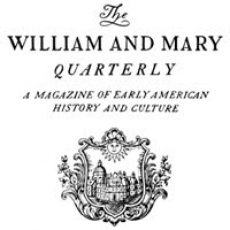"A Political Ecology in the Early Spanish Caribbean," The William and Mary Quarterly Vol. 71, No. 4 (October 2014): 517-548.
In a 1529 debate over the introduction of a dredge into the Caribbean pearl fisheries, fishery residents emphasized the superior technique of indigenous pearl divers. Whereas a dredge moved blindly along the ocean floor, indigenous crews could locate oyster banks by listening for oysters' noisy underwater “rooting.” This description reflected residents' careful attention to their sustaining habitat. In their opposition to several devices proposed over the course of the sixteenth century, Pearl Coast inhabitants offered their own understandings of how the region's marine ecosystem functioned in relationship to circum-Caribbean patterns of commerce and labor. The political ecology elaborated on the Pearl Coast compelled the Spanish crown to consider the nature of its new world empire.

